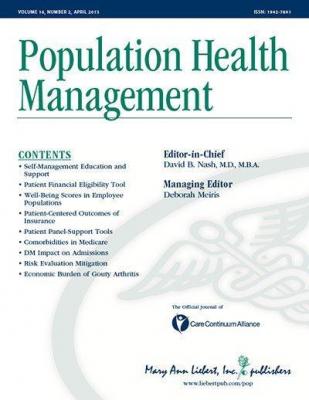
April 25, 2013 — The decision to perform an invasive procedure to open clogged arteries in the heart instead of first trying medication and lifestyle changes may not reduce a patient's risk of death or of a major cardiac event. Unnecessary procedures to treat chronic, stable heart disease contribute to rising healthcare costs. A targeted approach to avoiding this kind of overutilization by instead relying on evidence-based decision-making is presented in the peer-review journal Population Health Management. The article is available free on the Population Health Management website.
Lisa Behnke, M.D., MHA, BSN and coauthors from OptumHealth Care Solutions (Fort Myers, Fla., and Golden Valley, Minn.) and Jefferson School of Population Health (Philadelphia, Pa.) emphasize that whereas percutaneous coronary intervention (PCI) may be a lifesaving procedure for patients with an acute coronary event, it may not be more beneficial in stable coronary artery disease than more conservative treatment approaches, yet it has become increasingly common over the past 30 years.
In the article "A Targeted Approach to Reducing Overutilization: Use of Percutaneous Coronary Intervention in Stable Coronary Artery Disease," the authors present a model for shared decision-making in which physicians and patients together consider the various treatment options, what each involves, their risks and a comparison of the outcomes associated with each according to the latest evidence published in the medical literature.
"This study is a prime example of how comparative effectiveness research offers the promise of improved quality and safety, as well as lower cost," says Editor-in-Chief David B. Nash, M.D., MBA, dean and Dr. Raymond C. and Doris N. Grandon professor, Jefferson School of Population Health, Philadelphia, Pa. "Better informed decisions means the right treatments will be given to the right patients. This means fewer complications and shorter hospitalizations."
For more information: www.liebertpub.com/bari


 January 05, 2026
January 05, 2026 









